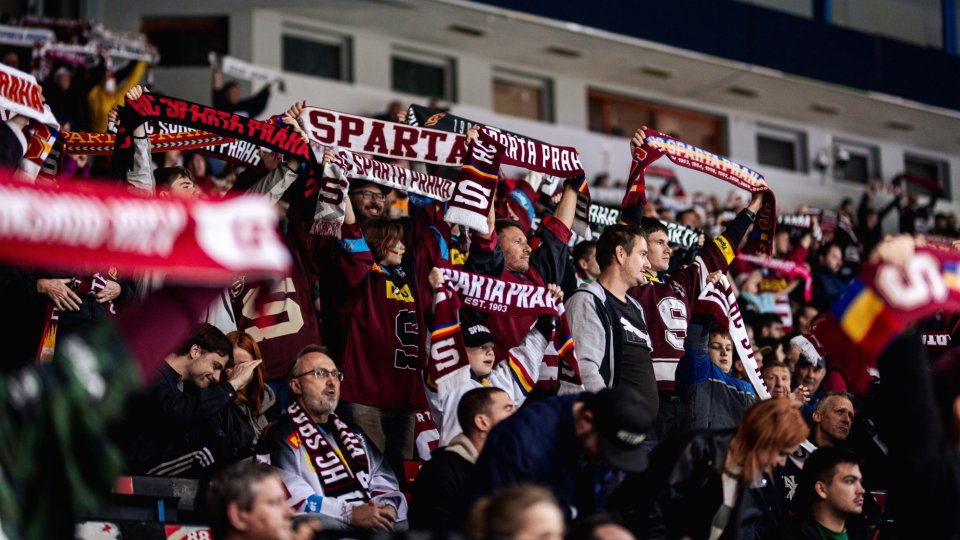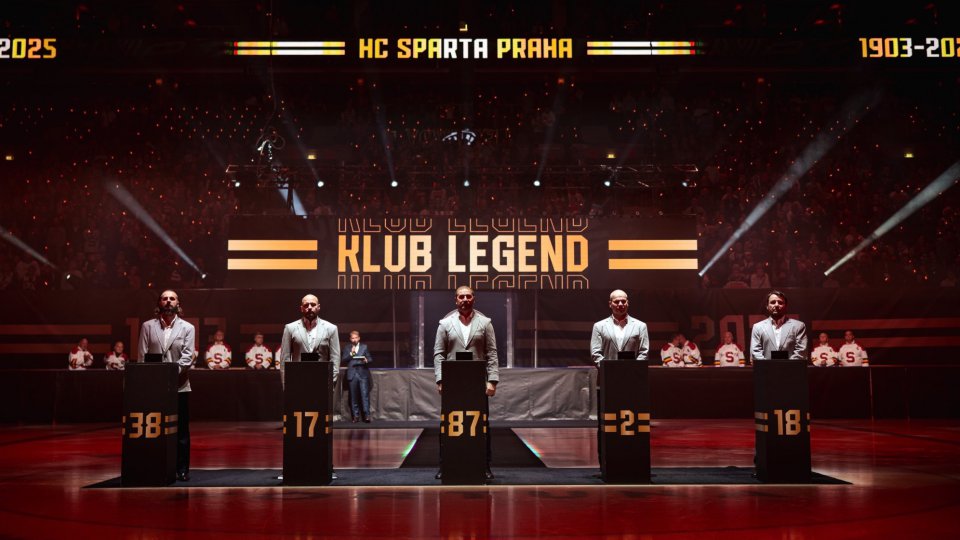The internship was attended by Sports Manager Michal Broš, Head Youth Coach and U20 Head Coach Jan Tlačil, Analyst Tomáš Vrábel, Fitness Coach František Ptáček and U18 Head Coach Richard Žemlička. The five watched a total of 15 on-ice and off-ince training sessions from U15s to adults. “Four of us were invited to take an active part in the ice. We spoke with Academy Director Mikael Ström, the Director of Student Development and the head coaches of all age categories, including the successful Roger Rönnberg, the current head coach of the Frölunda Indians,” said Broš.
Head Coach of the @frolunda_hc 🇸🇪 Academy Mikael Ström talks about @HCSpartaPraha 🇨🇿 visit in Göteborg within @IIHFHockey Partnership for Progress Program. #PartnershipForProgress #youth pic.twitter.com/s63NWFmW9E
— HC Sparta Praha (@HCSpartaPraha) 10. září 2018
Frölunda Academy Director Mikael Ström has prepared a presentation on the principles, functioning and history of their academy for the Spartans. Another interesting presentation was Linus Fagemo, Regional Director of the Swedish Hockey League. “He introduced us to the principles of Swedish youth development applied at national level, or to a program of Swedish youth representations,” Sparta’s sports manager continued.
Manager of Swedish Ice Hockey Association 🇸🇪 Linus Fagemo talked with Sparta manager and youth coaches about youth ice hockey system in Sweden. 🏒🥅 #youth #PartnershipForProgress pic.twitter.com/e0LhajVjEI
— HC Sparta Praha (@HCSpartaPraha) 11. září 2018
Along with the other coaches, he was given the chance to look “under the hood”. “We watched the day-to-day running of one of the most successful academies in the world, which produces an incredible number of world-class hockey players that end up on NHL teams, to see how to develop future stars. We took away a lot of information, thoughts and ideas that we would like to bring to our environment because we are constantly looking for ways to develop our HC Sparta Prague Academy,” said Broš.
Ptáček, who is a fitness coach for Sparta’s A team as well as the U19 and U16 teams, focused on watching off-ice training. “I am pleased that we aren’t doing things so much differently. But in terms of performance, they are a little bit different, which is due to the fact that they are set in a certain direction from the U16 category and whoever does not want to submit to it can look for another team. They don’t have to fight with lazy players to undergo a hard training program, or with teachers who don’t want to release players for practice,” he noted. “A couple of interesting ideas from Sweden to improve the off-ice preparation plan of our academy could certainly be applied in life,” he pondered.
Žemlička, a former professional player who is now the head coach of Sparta’s U18 team, was impressed by how they combine training with school attendance. “All the boys go to the same school that is sports-oriented and, as much as possible, free up the players for morning practice, which starts at 9 or 10 am. I think that´s crucial and necessary in a training regime for young players because they have most of their training in the morning. In our country, education is set up a little differently, so our players go to 12 different schools and we have big problems getting them free at the same time,” he lamented.
Vrábel focused on video and statistics. “It is interesting that the U18 team has a video session before each practice. In the Czech Republic, we are afraid that the players will be overwhelmed and overloaded with information and in Sweden they get daily feedback. So video coaches and analytics become commonplace, and when there’s no session, the players ask why not, and if they can get something sent to their mobile phones to see how they were doing in their practices and games,” he described.
“Interestingly, they are working with advanced statistics that are similar to those of ours in Sparta. They have the advantage that the Swedish league has signed a very lucrative contract with the prestigious Sportlogiq from North America. It offers statistics for all clubs in Sweden´s top competitions, so the analyst just translates the numbers into outputs that are understandable to both coaches and players. The arena has stationary cameras that film 24 hours a day. Anyone can see what´s happening on the ice at any time, upload the film, download it to a phone, point out the situations and have them cut virtually online. These are the most interesting things that might be adopted by our club,” he concluded.
























